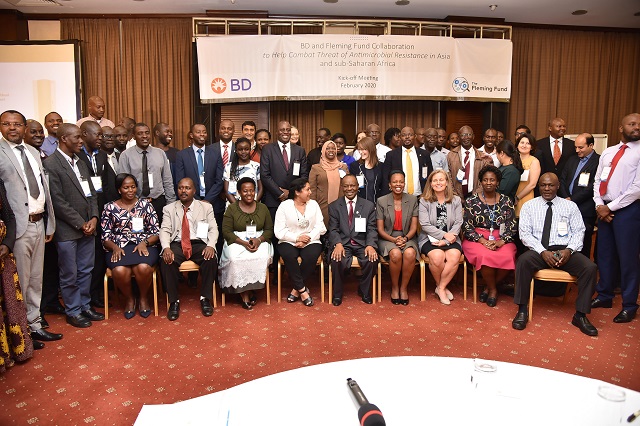
Kampala, Uganda | Julius Businge | Uganda is one of the countries in the world that will benefit from a Fund dubbed – Fleming Fund – which is a 265 million pounds that aims to tackle antimicrobial resistance in low and middle income countries.
According to experts, antimicrobial resistance occurs when microorganisms such as bacteria, viruses, fungi and parasites change in ways that render the medications used to cure the infections they cause ineffective.
According to a press kid distributed by the people behind the Fund in Uganda, on Feb.17, the Fund, will be managed by Mott MacDonald in close consultation with the Ministry of Health and other relevant line agencies and departments.
The programme was established in part as a response to the 2016 UK AMR review, which called for funding to improve public AMR awareness, drug use and public health surveillance.
The fund seeks to strengthen AMR surveillance systems in five key areas – building laboratory capacity and surveillance, developing the AMR workforce capacity, improving global solidarity and consensus on AMR and improving public awareness.
The UK AMR review estimated that by 2050, up to 90% of all deaths related to AMR will come from Africa and Asia. The Fund is named after Sir Alexander Fleming, the scientist who discovered penicillin and contributed to the world’s first antibiotic drug.
A total of around 1.8 million pounds is being spent in Uganda for the same cause until the end of 2020.
An additional of 3.4 million pounds will be disbursed in Uganda off the new funding of 265 million pounds.
 The Independent Uganda: You get the Truth we Pay the Price
The Independent Uganda: You get the Truth we Pay the Price





